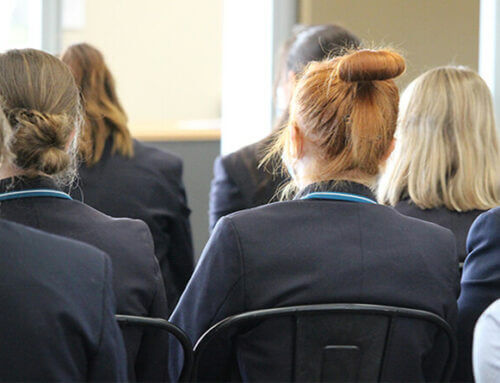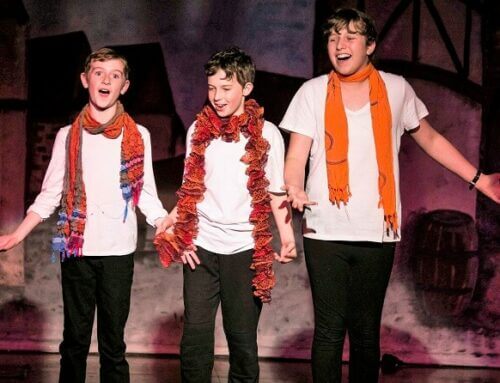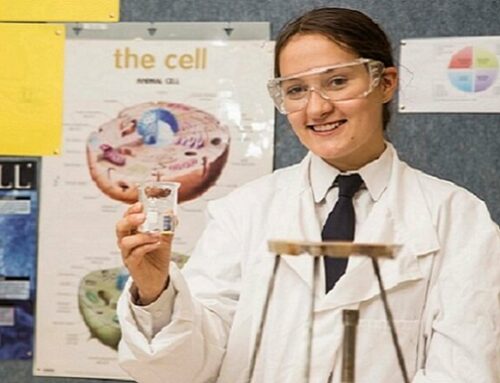Some years ago, we found ourselves with a particularly challenging group of Year 7 students, which included a group of boys who felt alienated and disconnected from the traditional school program of subjects and topics. They did not like school or teachers, or respect the property.
We recognised that we had to make significant changes to franchise all students in the middle years. Ever mindful of the Reggio Emilia approach in our early learning programs, but having no idea how this could be applied in the secondary years, we asked some hard questions:
- Why were these students so unhappy?
- Were there underlying learning problems?
- How could we work more effectively with our students?
- Were we meeting their needs?
However, a big question remained. How were we going to start Year 8 with these students and avoid the problems recurring? Our students solved this question for us.
During a Year 7 maths class on percentages, decimals and fractions, students were tasked with devising stories and finding the mathematics within. One group calculated that there had been 900 lifetimes of Homo sapiens, of which 660 lifetimes had been spent in caves and only three lifetimes had directly experienced motors and electricity as daily commodities. This was an astounding calculation and led to a deep discussion about history and how change occurred. An inquiry was the next step but, unfortunately, it was the last week of school.
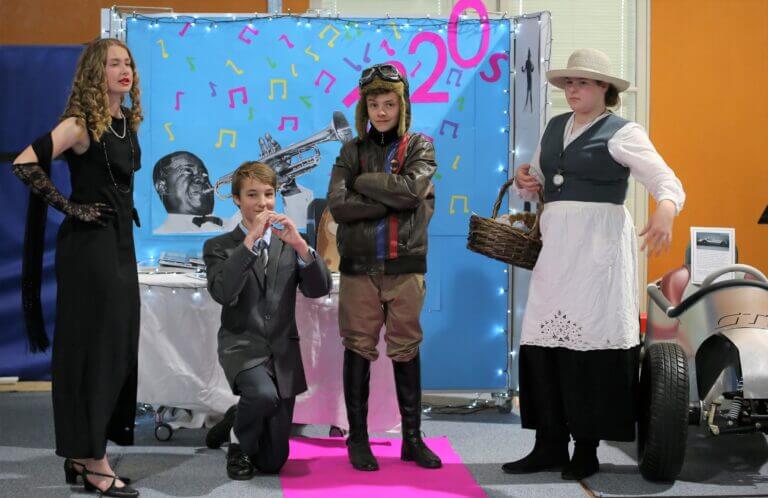
Staff from the disciplines of science, English, mathematics, design technologies, humanities and the creative arts started to plan how these ideas would form the basis of an integrated curriculum. We developed essential understandings that “Learning from the past still connects to the present” and “No change happens in isolation. One change brings about another”.
Teachers and students developed some rules:
- The physical environment had to be interesting. Classrooms should be full of books, poster paper, student work and photographs
- The key concepts would be change and connection and they would inform our inquiries
- We would integrate through the concept rather than through specific topics, as this allowed us to develop discipline depth as well as perspective across disciplines
- We embedded the 10 common principles of the Coalition of Essential Schools, of which “a tone of trust and decency” was our favourite.
The unifying point was a timeline drawn around the walls of the classroom that would serve as a visual documentation of change throughout history. As we discovered interesting things with our students, we would ask them to place iconic pictures or notes on the timeline, so that it would become a year-long work in progress. Although this was removed in order to paint the rooms last year, we intend to bring it back as part of a maths exercise in measurement in 2021.
Taking our lead from constructivist theory, we accepted that most learning should be in groups – not always optimal but we could work around it. We realised the power of art to allow students to make their learning and understanding visible. The Year 8 area became an art gallery and, through art, we could “see” learning made visible in a way that we often missed using the more conventional literacy and numeracy languages.
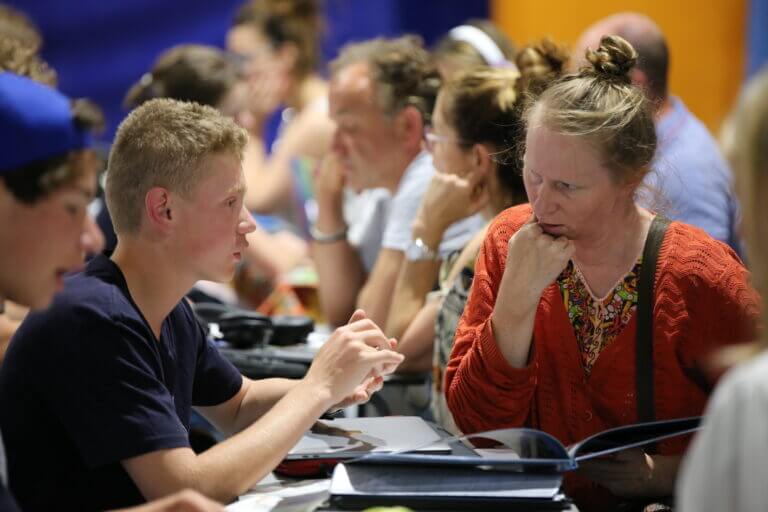
As a team, we learned to be flexible following Dewey’s “The job of the teacher is to turn impulse into purpose”. So we planned and were spontaneous, suffered uncertainty, considered discipline perspectives and inspiration from the teaching team and the students and, most importantly, had fun. We applied more Coalition of Essential Schools principles of “Less is more: depth over coverage” and “Student-as-worker, teacher-as-coach”.
We discussed and identified not only basic knowledge and skills but the wider possibilities – the alertness afforded by these concept-based standards along with our essential understandings.
Year 8 is an integrated concept-driven, inquiry-based classroom where we plan for purpose and possibilities. This requires a flexible classroom structure to allow time for inquiry. We make connections in literature, art, artefacts, music, dance, science and food as we explore change.
What students enjoy is scrapbooking current and past events and challenges. They read and write persuasive texts in response. Significant people are the hook into writing recounts and narratives. Students survey their families about change, graph the results and collect family stories. They enjoy free reading and their class novel on Australia’s Freedom Ride and the changes created by people like Charles Perkins.
Inquiries are many and have included issues in the news, significant change points in history, current challenges like climate change and the causes of world inequality. All are mapped against Cornish College’s Sustainable Thinking Disposition, represented by our four Rings of Sustainability – natural, personal, urban/technological and socio-cultural.
2WL culminates in the Night of Decades exhibition in Term 4. This has become a much-anticipated ‘rite of passage’ for our students. We integrate disciplines, as much as possible, and Term 4 is an exciting way to complete Year 8 as students plan, create, build and present in their Night of Decades teams. The program is personalised and shaped by the intellectual and imaginative powers and competencies that the students need. They appreciate the tone of trust and decency and calm expectation as they plan and work with their team and their teachers. Demonstration of mastery is another important Coalition of Essential Schools principle, where teaching and learning is documented and assessed with tools based on performance of real tasks. Students are required to present their understandings to the school community.
The Year 8 program continues to adapt and change, but has retained its integrity as an integrated program that is concept-driven and inquiry-based. Many students leave the Year 8 classroom saying ‘I really enjoyed this year’; they feel positive and return to school the following year feeling open to possibilities in Year 9.
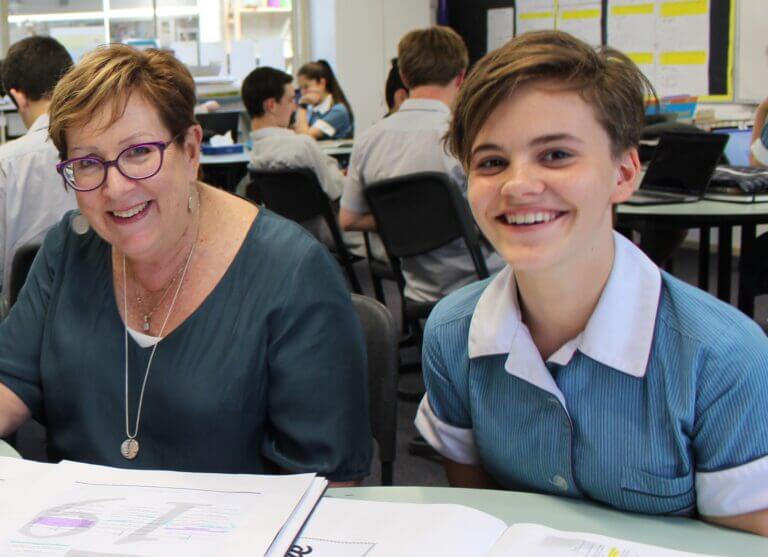
This program helps to break down potential cultural barriers and develop independent, young people as global citizens with both rights and responsibilities. On their return, through the Year 9 exhibition, students once again present their new-found understanding of their world to the school community. It is a wonderful way to complete the integrated middle years program.
Annemarie Denton has been a teacher at Cornish College, where sustainability is the key overarching concept for the whole community, for 20 years. Prior to that she spent 10 years in small business and six years teaching in the state system. She is the Integrated Curriculum Coordinator, overseeing key Years 8 and 9 programs including the Year 8 integrated program and Night of Decades exhibition, the Global Sustainability Program, City Week and the Make a Difference Experience for Year 9 students.
Annemarie enjoys exploring and implementing best practice in teaching and learning and she has a passion for teaching Years 8 and 9 students, working alongside them and “coaching” them, as they become strong, powerful learners. She is a firm believer in the integrated program, which is a concept-driven and inquiry-based program that allows the flexibility to work across disciplines and help students make connections.

